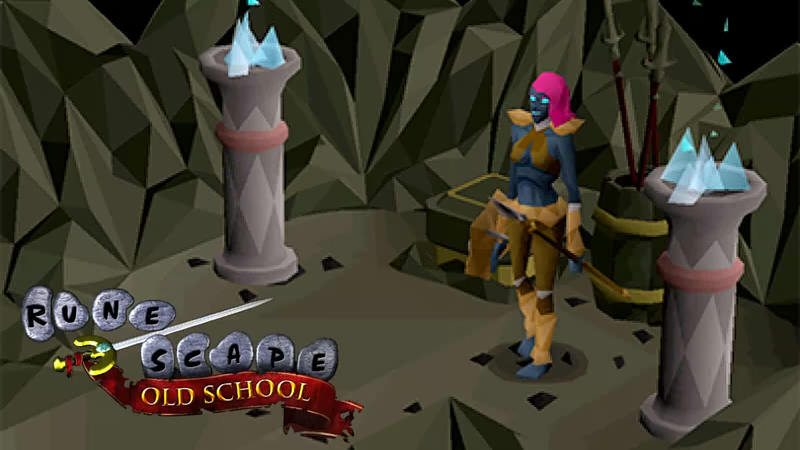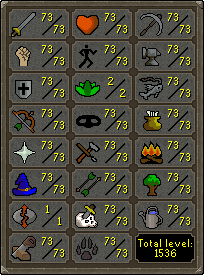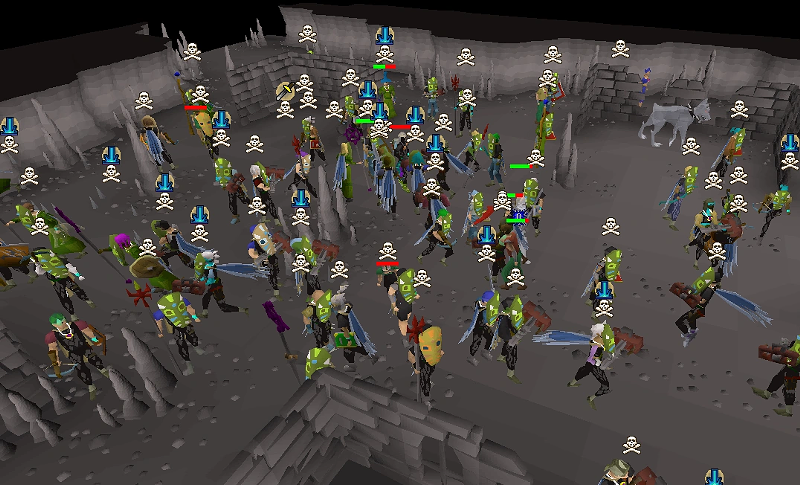In Old School RuneScape (OSRS), the pursuit of wealth is crucial for players aiming to avail themselves of the best equipment, potions, and other items that the game offers. Money-making in OSRS can be approached in various ways, each with its strategies and levels of risk and reward. Players often select a money-making method based on their individual play style, skill levels, and the resources at their disposal.
Methods of Making Money:
- Skilling: Players can earn gold by mastering and utilizing skills such as Fishing, Mining, and Woodcutting. These methods often have lower barriers to entry and allow players to make a steady income.
- Combat: Engaging with monsters provides valuable drops that can be sold. High-level PvM (player vs monster) encounters, like those in God Wars Dungeon or against bosses like Zulrah, offer larger payouts.
- Merchandising: This involves buying items at a low price and selling them for a profit, taking advantage of the Grand Exchange. It's a higher risk but can lead to high rewards based on market fluctuations.
In OSRS, the player's earnings can substantially differ depending on factors like current market prices and the availability of items. While some methods deliver quick profits, others may require continual grinding and patience. The selection of an effective money-making strategy is paramount for a player's success and growth in the game. They must consider efficiency, initial investment, and risk level when choosing the method that aligns best with their goals.
Understanding the OSRS Economy
In Old School RuneScape (OSRS), the Grand Exchange (GE) is the central hub for trade and commerce. It operates on a supply and demand principle, where prices fluctuate based on player trades and market activity. Players can buy and sell items within the game, and these transactions determine the current market prices.
Gold, the in-game currency, is the medium of exchange and holds the economy together. The value of gold and commodities is inherently linked to the player-driven market. Several factors influence the economic health of OSRS, such as:
- Item Rarity: Rare items typically fetch higher prices due to their scarcity.
- Demand: Popular items for combat or skilling often command premium prices.
- Updates and Patches: Game changes can drastically alter an item's value.
The following table provides insights into the behavior of the GE:
| Factor | Effect on Economy |
| Supply Glut | Prices tend to drop |
| Demand Surge | Prices tend to rise |
| Game Update | Can cause volatility |
| Bot Activity | May distort prices |
Players interested in profiting through the economy can do so by participating in various money-making methods, which often involve skilling, combat, or resource collection. Mastery of GE mechanics is an asset, allowing players to capitalize on the dynamic nature of the OSRS economy.
Effective participation in the economic system requires an understanding of both short-term fluctuations and long-term trends. Astute players track prices and make decisions based on anticipated market movements, thus ensuring their financial growth within the game.
Fundamental Money Making Methods
Old School RuneScape (OSRS) offers a variety of methods for players to earn gold. These include skilling, participating in combat, or strategically buying and selling items on the Grand Exchange (GE). Each method requires a different set of skills and strategies, with certain methods being more profitable than others. The following subsections outline the fundamental methods players can leverage to generate income in the game.
Skilling for Profit
Skilling encompasses activities like fishing, woodcutting, mining, hunter, and farming. These are core methods for players to gain materials that are in constant demand. For example, fishing can be particularly profitable when targeting high-level fish such as Karambwans, which can yield around 270k per hour. Woodcutting valuable logs, mining ores, and harvesting high-level hunter catches or farm produces are other ways to accumulate wealth.
- Fishing: Karambwans, sharks
- Woodcutting: Magic logs, yew logs
- Mining: Runite ore, adamantite ore
- Hunter: Black chinchompas, red chinchompas
- Farming: Herbs, trees
Combat and PVM Methods
Combat and Player Versus Monster (PVM) methods involve defeating monsters and bosses. This can be particularly lucrative when it involves high-level content such as Slayer tasks, bosses like Zulrah and Vorkath. The latter, for example, can provide earnings of up to 1 million gold per hour. Regular combat through Slayer tasks also leads to accumulating valuable drops over time, making it a staple money-making endeavor.
- Slayer tasks: Various monsters, valuable drops
- Bosses: Zulrah, Vorkath, other high-level bosses
Trading and Flipping Items
Trading and flipping on the Grand Exchange involve buying items at a low price and selling them at a higher price. This requires knowledge of market prices and trends. Profits depend on the player's ability to predict price changes and capitalizing on the difference. Due to fluctuating prices, it is recommended to start with a small investment to test the market before committing more resources.
- Trading: Predicting market demand, bulk sales
- Flipping: Short-term buying low and selling high
Advanced Skilling Methods
In Old School RuneScape, advanced skilling methods are crucial for players seeking higher profits. Mastery in specific skills enables members to leverage high-requirement activities for substantial income.
Crafting Runes for Income
Runecrafting is a profitable avenue for players with high-level skills. Creating nature runes, astral runes, law runes, blood runes, and wrath runes are particularly lucrative. Players will need access to their respective altars and for blood and wrath runes, a significant Runecrafting level is a necessity, being:
- Blood Runes: Level 77 Runecrafting
- Wrath Runes: Level 95 Runecrafting
The demand for these runes often keeps prices stable, and the higher-level runes like blood and wrath can net upwards of 2,000 coins each, making them attractive for individuals committed to the skill.
High-Level Gathering
Advanced gathering skills involve mining, fishing, and woodcutting, each offering valuable resources to those with the necessary levels.
| Skill | Requirement | Typical Activities |
| Mining | High Mining level | Extracting ores and minerals |
| Fishing | High Fishing level | Catching expensive fish such as shark |
| Woodcutting | High WC level | Chopping Magic logs or Redwood trees |
These skills offer consistent income, with high-level areas or rare resources often yielding better profits.
Production Skills
Production skills such as smithing, crafting, cooking, fletching, and brewing unlock high-level money-making pursuits once players surpass certain skill thresholds.
| Skills | Requirement | Profitable Methods |
| Smithing | High Smithing level | Smelting bars; forging high-tier armor and weapons |
| Crafting | High Crafting level | Creating jewelry; glassblowing; cutting gems |
| Cooking | High Cooking level | Preparing high-level foods; brewing (with Cooking & Herblore) |
| Fletching | High Fletching level | Making high-demand ammunition and bows |
Capable craftsmen can find high demand for their goods, especially from other players looking to level their combat skills. Cooking also proves profitable, particularly when catching and cooking one's own fish or brewing ales that can boost certain skill levels temporarily.
Combat-Related Money Making
Combat in Old School RuneScape (OSRS) offers various opportunities for players to generate income. This financial gain is dependent on factors such as the player's levels in combat skills, the efficiency of their killing strategies, and the ability to collect and sell valuable loot.
Player Versus Monster (PVM)
Players engaging with Player Versus Monster (PVM) activities can earn substantial profits by defeating bosses and high-level monsters. Bosses like Zulrah and Vorkath are particularly lucrative, offering high-value drops such as the blowpipe and skeletal visage. To maximize earnings, it's important for players to possess high levels in attack, strength, and defence. Those focusing on slaying cave horrors can expect black masks as a notable drop. In addition to combat skills, players should invest in effective gear and armour, and consider the use of prayer to enhance their combat abilities.
Efficient Killing Strategies
Efficiency in killing strategies is key to maximizing profits over time. Utilizing the appropriate combat style—melee, ranged, or magic—can significantly impact efficiency. For ranged, players should consider gear like the toxic blowpipe for high DPS or broad bolts for a balance between cost and damage. Magic users often rely on battlestaff variants for both offensive and defensive capabilities. By honing these strategies and minimizing downtime between kills, players can increase their hourly profit margins.
Loot Gathering and Selling
The final component of successful combat-related moneymaking is effectively gathering and selling loot. Bones, skins, and items like sharks and sacred eels can be consistent sources of income. Slayer tasks often reward players with valuable drops that they can sell on the Grand Exchange. For example, the bones from dragons or the hides from various monsters can add up to a significant profit. It is imperative for players to have sufficient inventory space for loot and to regularly bank and sell these items to maximize income.
Exploring Alternative Methods
In addition to conventional skilling and combat, players looking to increase their earnings can explore alternative methods in Old School RuneScape. These methods often incorporate a blend of strategy, specialized knowledge, and occasionally, the ability to capitalize on seasonal events.
Theft and Rogue Activities
Players can engage in thieving to profit by pickpocketing various NPCs throughout the game. A lucrative target for thieving is the master farmer. By employing the proper gear, such as the Rogue's outfit, players maximize their loot from each successful pickpocket. High-level thieves can also attempt to steal from stalls in Ardougne for valuable items like gems.
Specialized Hunting Techniques
Hunting offers an array of profitable methods, each requiring specific knowledge and strategy for optimal results. Implings can be caught within Puro-Puro or across Gielinor, yielding rewards once traded. Advanced hunters often seek out black chinchompas in the Wilderness, which can be sold for a premium. However, this also involves a higher risk due to the Wilderness's player-versus-player nature.
Utilizing Minigames and Events
Minigames serve as an engaging way to earn rewards. Players must understand each minigame's mechanics to reap the full benefits. Special seasonal events frequently introduce unique opportunities for players to gain items that can be sold for a profit. Participation in events like the Easter or Halloween ones can provide exclusive rewards that become valuable over time.
In navigating these alternative money-making avenues, players are reminded that profits may vary and risks are often involved. A solid grasp of the underlying quests and strategies enhances the chance of a lucrative outcome.
Maximizing Profits with Passive Income
In the realm of Old School RuneScape, passive incomes are a favored method for players looking to maximize their profits without constant active play. They can set up various income streams that accumulate wealth over time, enabling them to focus on other aspects of the game.
Farming Willow Trees: One can utilize five tree patches across Gielinor to grow Willow trees. A player needs merely secateurs and a few minutes—roughly 2-3 minutes—to harvest these trees for substantial gains. This method could yield approximately 800,000 GP per hour, given attentiveness to 35-minute growth cycles.
Birdhouse Runs: These runs require the quest Bone Voyage for access. A player can make over 500,000 GP a day by checking and harvesting birdhouses every 50 minutes. This task combines both gear acquisition for the runs and the player's inventory management for storing bird nests.
Managing Miscellania: This long-term investment strategy requires players to maintain citizen approval ratings and daily salaries in the kingdom of Miscellania for resource gathering. The resources obtained are deposited directly into the player's bank, contributing to a profitable passive income.
Players are encouraged to schedule their activities to coincide with these passive methods to efficiently maximize their daily profits. It is crucial to remember that market prices fluctuate, so the profits mentioned are subject to change based on the Grand Exchange market.
By engaging in these underlying strategies, players enjoy a steady increase in their wealth, allowing them to invest further in their farming skills, upgrade their gear, and optimize their inventory management.
Efficiency Tips and Time Management
Successful money-making in Old School RuneScape (OSRS) hinges on efficient time management and selecting the right methods based on one's available time and goals. Players should assess how much time they can dedicate to money-making endeavors and choose methods that align with that time commitment for optimal profits.
Prioritize Profitable Skills: Players should focus on skills that yield higher hourly profit. For instance, activities like hunting black chinchompas can be very lucrative, especially with the appropriate Hunter level.
Time-Efficient Tasks: Some tasks require less continuous attention and are great for players with limited time. Fishing karambwans, for example, offers reasonable profits with minimal engagement.
| Method | Hourly Profit | Time Commitment | Notes |
| Hunting Chinchompas | High | Varies | Best with higher Hunter level |
| Fishing Karambwans | Medium | Low | Suitable for short sessions |
Set Goals: Define short-term and long-term financial goals. Efficient strategy means setting milestones, like a coveted piece of gear or a financial safety net for in-game transactions.
Track Progress: Tools or spreadsheets can track hourly profit, helping players to refine their methods and understand which activities are most time-efficient.
Time-Sensitive Events: Some money-making opportunities are event-based. Players should stay informed about temporary boosts or events that can increase profitability for certain activities. Prioritize these time-sensitive events to maximize gains.
Balance Methods: While combat is typically more profitable, skilling methods should not be ignored, as they provide a balance and can fill in for times when a player is looking for a less intense gameplay experience.
Utilizing Quest Rewards and Unlocks
In Old School RuneScape (OSRS), completing quests can lead to lucrative money-making opportunities due to rewards and area unlocks. Certain quests unlock areas or capabilities that can significantly increase a player's gold per hour.
For example, the quest "Tai Bwo Wannai Trio" opens up new fishing methods, such as catching Karambwans. A player with a high enough fishing level can make a consistent profit by fishing these high-demand delicacies. Efficiency can be further improved by utilizing bank facilities that are made accessible with more quest completions.
Fairy Rings, an extensive transportation network unlocked by starting the quest "Fairy Tale II - Cure a Queen," are another example. The Fairy Rings grant players quick access to remote, resource-rich areas. Resources obtained from these areas often fetch high prices on the Grand Exchange, making this an effective method for generating income.
Here's a brief outline of the process:
- Complete Relevant Quests: Gain access to new methods and areas.
- Leverage Unlocks: Use new fishing spots or transport rings to gather and sell resources.
- Maximize Profits: Sell the rewards or resources at the Grand Exchange.
Players should note that market prices fluctuate. Therefore, it's advisable to keep abreast of the current Grand Exchange rates to maximize their earnings.
By focusing on quest rewards and the content they unlock, players can establish a reliable source of income. It requires initial time investment in quests, but the benefits can be substantial for dedicated players.
Membership Benefits and Money Making
Membership in Old School RuneScape (OSRS) unlocks a vast array of lucrative methods for making money that are not accessible to free-to-play users. Members have the advantage of a larger, more diverse game world with additional skills, quests that open new opportunities, and exclusive areas known for their profitable resources.
High-Level Content: Members gain access to high-level content, which frequently leads to more profitable money-making ventures. For example, methods like harvesting herbs from Farming, processing raw materials from the Hunter skill, or advanced Slayer tasks are all ways that members can substantially increase their income.
Exclusive Areas: Members-only areas, such as the elven lands of Tirannwn or the resource-rich kingdoms of Great Kourend and Kebos Lowlands, offer unique and high-value resources that can be mined, fished, or harvested, then sold on the Grand Exchange for a profit.
| Activity | Requirements | Potential Profit |
| Herb farming | Farming level and seeds | Variable based on current market prices |
| Slayer task completing | Slayer level | Depends on the monsters and drops |
| Resource gathering | Various skill levels | Dependent on resource type and market demand |
Trade Benefits: With access to the full range of items on the Grand Exchange, members have the exclusive ability to participate in flipping and other merchanting activities that capitalize on market fluctuations, which can yield significant profits if done intelligently.
Members should always research current market trends and the demand for various items to maximize their profits. The varied skills and extensive geographic areas available to members create a base from which many unique money-making methods can arise, making the membership investment a potentially lucrative decision.
Making Money as a Free Player
Free players in Old School RuneScape have various methods at their disposal to generate income. These methods primarily involve skilling and combat, each offering a pathway to profit with different levels of engagement and skill requirements.
Free-to-Play (F2P) Skilling
Woodcutting: Free players can cut trees for logs, which can be sold for profit. Normal logs yield modest earnings, but as players level up, they can chop down more valuable trees like oaks or willows. The market price for these resources fluctuates, so players should check current prices before selling.
Fishing: Fishing is another consistent money-making method for F2P players. Starting with low-level fish like shrimp and anchovies, players can progress to catching trout and salmon with higher fishing levels, increasing their profits.
Mining: Mining ores is a lucrative activity. Players can mine iron ore as a dependable source of income. For those with higher mining levels, mining coal or even the rare runite ore (which is highly competitive) can significantly boost earnings.
F2P Combat Money Making
Fighting Cows: For newer players, combat against cows is an easy way to earn money through the collection and sale of cowhides. Cowhides can be sold on the Grand Exchange, and, despite being a lower-level method, can provide a steady income.
Combat methods typically generate higher profits compared to skilling methods, especially as a player's combat level increases, allowing them to defeat more formidable foes. All profits depend on current Grand Exchange market prices, so players should monitor these before selling their loot.
Frequently Asked Questions
In this section, Old School RuneScape (OSRS) players can find answers to common questions regarding effective money-making methods.
What are the best F2P methods for making money in OSRS?
For players without a membership, mining ores like iron and selling them can be profitable. Telegrabbing Wines of Zamorak is also a popular method for those looking to maximize gold gain without a subscription.
What money-making strategies do top players recommend on Reddit for OSRS?
Top players on Reddit often suggest high-level PvM (player vs monster) activities such as defeating bosses like Zulrah, Vorkath, and participating in raids like the Theatre of Blood and Chambers of Xeric for members or flipping items in the Grand Exchange for both F2P and P2P users.
Which activities in the OSRS wiki are the most lucrative for increasing wealth?
According to the OSRS wiki, high-level PvM activities, including God Wars Dungeon and slaying monsters like Zulrah or Vorkath, are among the most lucrative. For non-combat methods, crafting runes via runecrafting is significantly profitable.
How can I quickly accumulate gold in Runescape, especially in OSRS?
To quickly accumulate gold in OSRS, players often engage in activities such as slaying high-level bosses, farming valuable herb runs, or engaging in profitable skilling such as blackjacking or blast furnace for smithing.
For Ironman accounts in OSRS, which money-making methods are most effective?
Ironman accounts are well-served by self-sufficient methods such as crafting nature runes, managing the Miscellania kingdom, and utilizing high-alchemy on valuable items crafted or obtained by the player themselves.
What are the most profitable AFK activities for making money in OSRS?
For those seeking AFK (away from keyboard) money-making methods, fishing for monkfish or sharks, woodcutting magic or yew trees, and mining at the Motherlode Mine are among the most profitable activities.
For more information email [email protected]








